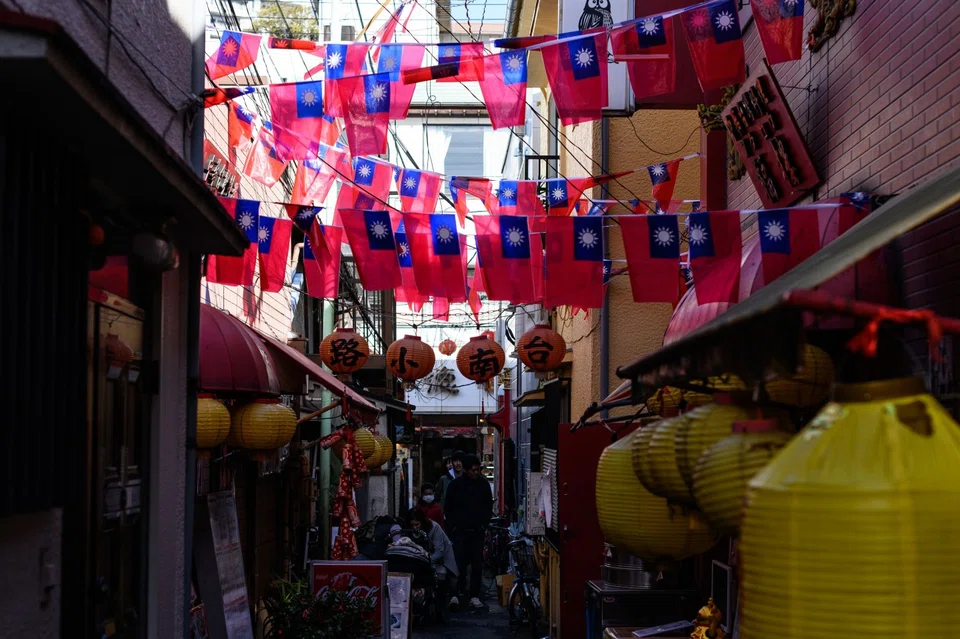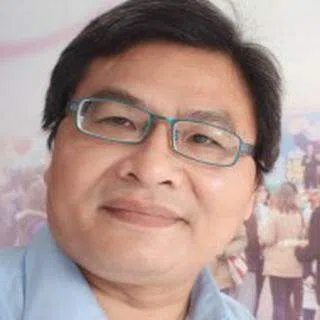Mainland China and Taiwan: Game of push and pull continues amid the Covid-19 epidemic
With "Island encirclement" drills over Taiwan airspace, verbal exchanges and other moves, China reiterates its firm stance against independence for Taiwan. The latter, meanwhile, continues to find wiggle room by growing its international space.

Recently, a series of jet fighters and bomber planes, such as the People's Liberation Army's J-11 jet fighter, conducted "island encirclement" drills over Taiwan airspace. Spokesperson of China's Eastern Theater Command emphasised that these drills were completely legal and that it was determined and capable of crushing all separatist activities to safeguard national sovereignty and territorial integrity, and maintain the peace and stability of the Taiwan Strait.
The Taiwan Affairs Office of the State Council said that these actions were taken in direct response to the visit to the US by Taiwan's Vice President-elect, William Lai Ching‑te. China's Global Times also accused Taiwan of colluding with the US to fight against China, and said that Taiwan was using Lai's visit to advance Taiwan's independence efforts. Moreover, at a World Health Organisation (WHO) meeting, Beijing authorities criticised countries who supported Taiwan's attempt to participate in Covid-19 outbreak meetings as violating the one-China principle and interfering with China's domestic affairs.
Amid a global fight against the Covid-19 epidemic, increasing tensions between Taiwan and mainland China is counterproductive.

No doubt, mainland China and Taiwan have engaged in some cooperation because of humanitarian reasons. President Tsai Ing-wen also softened her stance recently, expressing that "the most important thing now is to contain the virus". She also hopes that "a consensus with the other party can be reached as quickly as possible".
But both sides have been unable to break free from the vicious cycle of increased tensions that has ensued since the Democratic Progressive Party (DPP)'s landslide victory at the 2020 Taiwan elections. China's policies towards Taiwan are still taking the "hardening the hard, and softening the soft" stance - ratcheting up both its hard and soft measures without any signs of letting up.
Worse before it gets better
Firstly, Beijing has been flexing its military muscle. After the end of the Taiwan elections, China immediately began its island encirclement long-distance training session, flying over the Bashi Channel into the Pacific before heading back to base via the Miyako Strait. Military aircraft that participated in the exercise included destroyers, bomber planes, fighter aircraft, and early warning aircraft that were mobilised together to evaluate their combat capabilities as a whole.
The Chinese military aircraft were intercepted by both Taiwanese military aircraft and planes from the Japan Air Self-Defense Force. Chinese escorting planes had briefly crossed the Taiwan Strait median line but later retreated to the western side of the line after Taiwanese military aircraft intercepted them and issued multiple radio warnings. China's repeated incursion into Taiwan's airspace implies political provocation and military intimidation. It aims to intensify military pressure on Taiwan, creating the impression that the Taiwan Strait is part of China's inland seas.

From the perspective of many Taiwanese, this not only jeopardises the sovereignty, independence and security of the Republic of China, but also threatens regional peace and stability. The rapid escalation of Covid-19 has dealt a big blow to China's international image as a major socialist power, the world's second largest economy, and the world's third strongest military.
In light of the DPP's greater power to implement pro-independence policies after it won over half the number of votes at both the presidential and legislative elections, the Taiwan Affairs Office of the State Council and the Central Leading Group for Taiwan Affairs both reiterated their insistence on the "1992 Consensus" and a rejection of all forms of activities promoting independence for Taiwan at press conferences and meetings.
War of words
Secondly, China's hard stance towards Taiwan can be seen in its efforts to diminish the latter's international space. Even after the first confirmed Covid-19 case was discovered in Taiwan, China stopped Taiwan from participating in relevant meetings of the WHO. As Tsai's government has openly rejected the "1992 Consensus", it has not been invited to participate in WHO conferences as an observer since 2017. In 2019, Taiwan was excluded from a vaccine meeting for the first time.
Since the outbreak, various countries have shown support for Taiwan and its inclusion in the WHO's global epidemic prevention system. Japan Prime Minister Shinzo Abe and Canadian Prime Minister Justin Trudeau declared their support for Taiwan. These positions of support have been building up over time. Japan's Foreign Minister Taro Kono, for instance, tweeted Japan's support for Taiwan's inclusion in WHO meetings as an observer in 2019.
As both sides refused to mince their words, they have lost the opportunity to ease their political stalemate through bilateral cooperation.
Taiwan's exclusion from the WHO has led its healthcare experts to miss out on the WHO's second technical meeting regarding the Covid-19 outbreak. It not only placed 23 million Taiwanese at risk of the escalating outbreak, but also prevented the international community from receiving technical assistance from Taiwan's top medical experts.

However, China's representative to the WHO, Li Song, criticised the various countries that were friendly towards Taiwan. He believed that their expressions of support were made "purely out of political motivations and seriously violates the purpose and principle of the Charter of the United Nations and the WHO". He said that the moves also violate "the relevant decisions of the United Nations General Assembly and World Health Assembly, and has deviated from the theme of the conference, violating the rules of procedure".
Chinese foreign ministry spokesperson Geng Shuang even expressed that "nobody cares more about the health of our Taiwan comrades than the Chinese central government", asserting that Taiwan must adhere to the one-China principle if it wants to join an international organisation and should make reasonable arrangements through negotiations between relevant authorities of both sides.
In response, the Taiwanese foreign ministry spokesperson Joanne Ou derided this demand as "political blackmail", highlighting the country's "evil nature". As both sides refused to mince their words, they have lost the opportunity to ease their political stalemate through bilateral cooperation.
Visit to US by Taiwan's vice president-elect
Lai's visit to the US was actually a low-profile one, even though he was seated in the front row together with the president and vice president of the US. As Taiwan's vice president-elect who was not in office yet, Lai kept to his boundaries and purposely did not engage in provocative and inappropriate speech, such as illuminating his pragmatic stance on Taiwan's independence.
In Lai's defence, President Tsai expressed that Lai had not assumed office yet, and was on a personal trip to the US. He was also invited by an American civil group, which adhered to the principle of taking a cautious and non-provocative approach.
China's policies towards Taiwan display its strategic resolution and confidence. A temporary public emergency will not change its stance.
Prior to his visit, Lai had actually called for Taiwan to provide assistance to China in its fight against the outbreak, proposing a collaboration between both sides to contain the virus.
He believes that both China and Taiwan have common enemies - referring to infectious diseases and natural disasters - and goals, and should thus work together. He has been criticised by pro-independence groups for holding this view.

Lai has proposed both the ideologies of "feeling affinity toward China and having love for Taiwan" and a pragmatic approach towards Taiwan independence. He has been adjusting his stance and inclining towards "feeling affinity toward China and having love for Taiwan". But for his pragmatic Taiwan independence stance and visit to the US, China responded by performing island encirclement drills and crossing the median line to intimidate Taiwan. Clearly, positive and open propositions that are on the day-to-day routines and functions, or at the economical level are unable to resolve sovereignty conflicts between both sides of the Taiwan Strait.
Amid tough battling between both sides in containing the Covid-19 outbreak, some may think that China is intimidating Taiwan to deflect attention from its domestic handling of the outbreak. However, effects of such a "deflection" are very limited. In reality, China is still adopting a "hardening the hard" position towards Taiwan even in the face of a virus outbreak. Its approach does no favours for its image and will likely further distance Taiwan from China. In other words, China's policies towards Taiwan display its strategic resolution and confidence. A temporary public emergency will not change its stance.



![[Photos] Fact versus fiction: The portrayal of WWII anti-Japanese martyrs in Taiwan](https://cassette.sphdigital.com.sg/image/thinkchina/3494f8bd481870f7c65b881fd21a3fd733f573f23232376e39c532a2c7593cbc)

